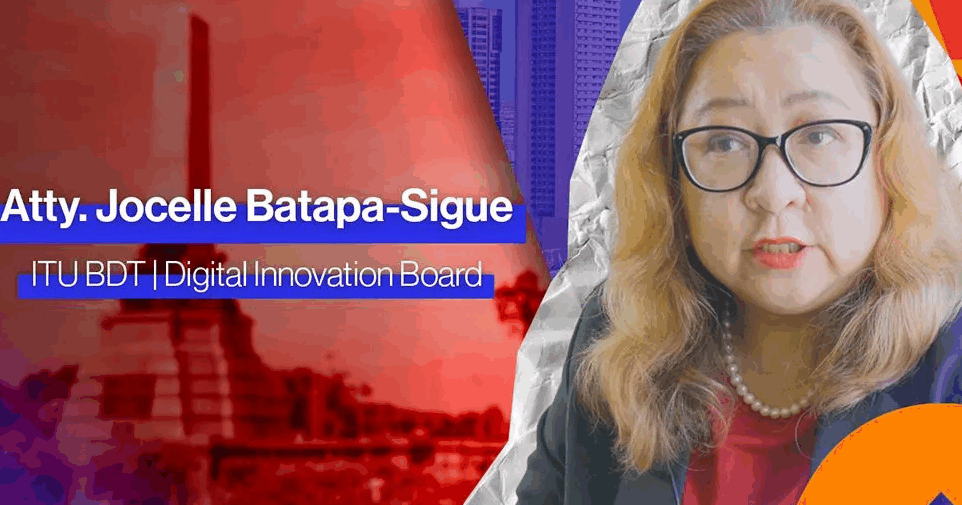Atty. Jocelle Batapa-Sigue, a leading figure in the Philippines’ digital transformation movement and a member of the ITU BDT Digital Innovation Board, is on a mission: to expand the country’s tech development beyond Metro Manila to regional cities and underserved communities.
Jocelle Batapa-Sigue Champions Digital Development Beyond Metro Manila

From Local Leadership to National Impact
Batapa-Sigue’s strategy is rooted in years of advocacy and policymaking. As a former local legislator and national official at the Department of Information and Communications Technology (DICT), she now focuses on mobilizing local governments, industry, and academia to collaboratively build a digitally inclusive future.
With over 27 years of legal experience and an impressive public service track record, Batapa-Sigue promotes a development approach based on ecosystem thinking. She emphasizes that rural areas should not be viewed as isolated or underdeveloped but recognized for their diverse capacities and digital potential across cities and semi-urban areas in the Philippines.
She classifies regional cities based on digital job readiness and infrastructure. Cities like Bacolod, Iloilo, and Davao are ranked in the first tier, each offering over 50,000 digital jobs, while second- and third-tier cities are rapidly growing due to strong leadership, talent development programs, and enabling environments.
A standout example is Balanga City in Bataan province, where Batapa-Sigue actively supports local ICT advocates in building competitive digital talent pools. She provides policy advice, talent development strategies, and infrastructure guidance to help local governments attract long-term digital investments.
Building Bridges Through “MAGIC”
At the heart of her approach is the “MAGIC” framework—Making Academia, Government, and Industry Collaborate. This model encourages key stakeholders to co-create scalable digital ecosystems tailored to local contexts. Batapa-Sigue emphasizes that shared ownership is essential to sustaining digital momentum in small and mid-sized cities.
Under this integrated model, she has outlined several areas of cooperation where organizations like the SiGMA Foundation can play transformative roles—especially in skill-building and reskilling within emerging fields like game development.
Advocating for Gender Inclusion in Tech
Beyond infrastructure and policy, Batapa-Sigue underscores the urgency of gender equality in ICT. As a former ITU representative, she has actively highlighted the severe underrepresentation of women in the tech sector.
In Southeast Asia, only 16% to 20% of women participate in the ICT industry, with even fewer girls pursuing studies in computer science or software engineering. To bridge this gap, she champions targeted programs aimed at equipping women and girls with digital skills.
She calls on stakeholders, including the SiGMA Foundation, to join her in designing advocacy campaigns that normalize female participation in technology. Her long-term vision is not only to achieve gender balance but also to unlock the immense potential of women in the digital economy.
Calling for Inclusive Partnerships
Now working independently in the private sector, Batapa-Sigue brings with her a wide-reaching network that spans both public and private sectors. She invites international organizations such as the SiGMA Foundation to collaborate and help amplify the impact of community-focused digital programs nationwide.












